We have entered the final days of our retreat. There is talk of taxis to the airport, last minute gifts, the loved ones we left behind, and the things we will be facing back home. People are letting in the reality that we will soon be saying goodbye to Scotland, to Newbold House, and to each other.
It is my job at this point in the retreat to remind people to remain here, to stay present with each other, and to keep open. As I write these words, it is 1:30 AM and we still have two full days left. Tomorrow we are going on an all-day outing to Caingorm National Park, and Friday we will have our final writing class and our closing circle.
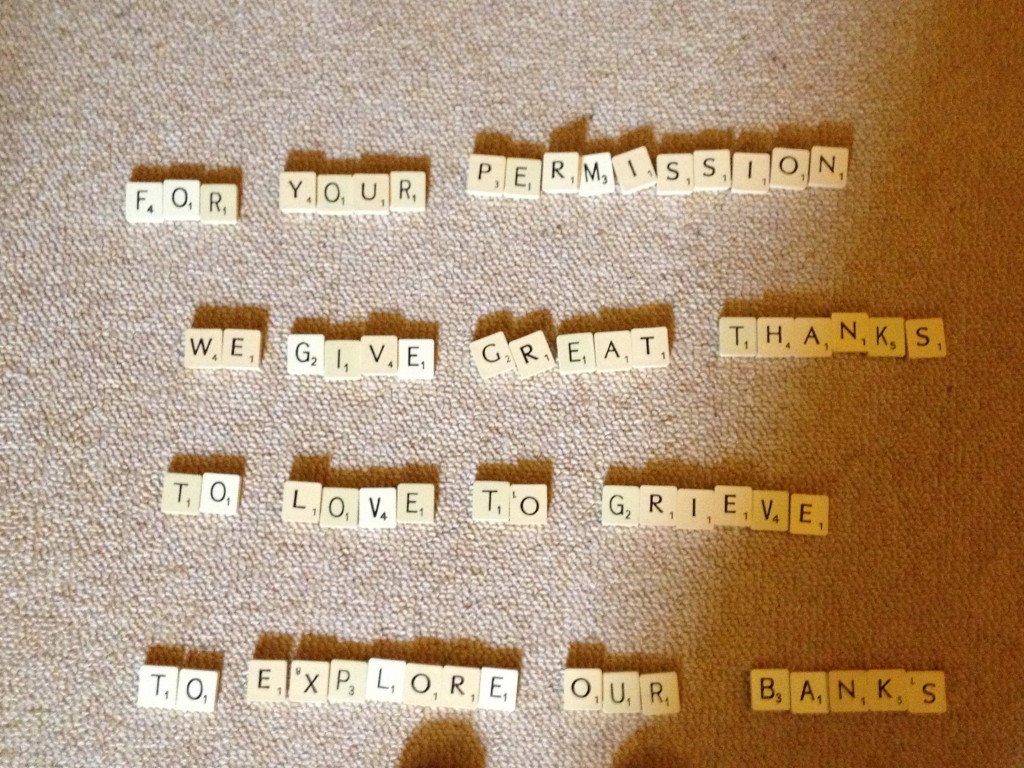
This is what the Scrabble fairy left in front of my door while I slept. I had to assume that “bank” in this case didn’t mean a savings and loan; it meant extending beyond the boundaries of what used to be safe and contained, more like a river overflowing.
After our breakfast of porridge (something the locals never seem to tire of), we climbed on our bus for the last time. Talin, who has a great sense of fun and mischief, introduced us to a game she invented called Song Tag. Her joy and enthusiasm was infectious and we had a great time singing.
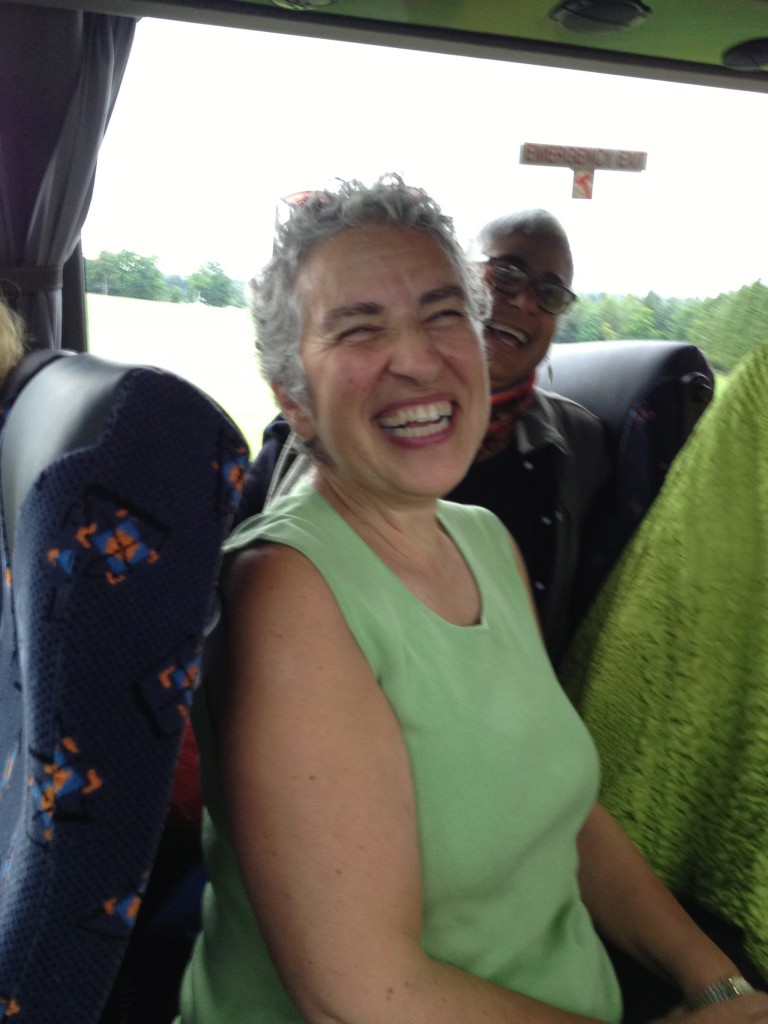
How the game works is this: Talin divided us into two teams, one on each side of the bus. Then she put a number of previously prepared slips of paper into a hat and had us pick them, one at a time. They said things like, “songs with animals in them,” or “songs with numbers from one to a hundred,” or “songs about things you can wear,” or “songs about food.”
Then the first team (or someone on that team) sang a song that fit the category. The other team countered with a second song. If the category was “songs with an animal,” the first team might sing, “Rocky Raccoon” and the second team might follow with, “How Much Is That Doggy In the Window.” The first team might counter with, “Old McDonald,” the second team with, “Animal Crackers.” Turns continue until no one can think of another song that fits the category. Then you pick another slip and start again.
It was a great game because everyone could sing whatever genre and era of music they were most familiar with. My favorite category was “national anthems.” Not only did we hear The Star Spangled Banner and My Country Tis of Thee, we heard the national anthems from Germany, England, Pakistan, Australia, Puerto Rico and Canada.
Our first stop for the day was the RSPB Loch Garten Osprey Centre, a bird sanctuary dedicated to repopulating ospreys in Scotland. When we pulled up at the Centre our singing game ended, and Deb, our tour guide from Newbold, politely tried to corral our rowdy energy into something more appropriate for birdwatching. “Soften into your senses,” she said, “Slow your pace and open up your peripheral vision. Be part of this ecosystem.”
And so we walked through the woods to the Osprey Centre in silence. I loved walking deliberately and slowly down the heather-lined path. And then I stopped and closed my eyes and the sounds around me were instantly amplified. There were so many bird calls!
Inside, the first thing I noticed were the white boards lining one wall. One was titled, “Birds Seen This Season So Far” and the list included buzzard, chaffinch, coal tit, siskin, treecreeper, blue tit, great tit, waxwing, and of course, osprey. The other board was entitled, “The Day So Far,” and it listed birds observed so far today. Next to this wall was a viewing area with picture windows, equipped with binoculars and telescopes trained on the nests.
I learned that ospreys had been shot to extinction here in 1916, their last stronghold in Scotland deserted. In 1954, the first nesting pair arrived from the Netherlands. The first reserve was purchased in 1975. By 1998, there were 130 pairs nesting with over 200 young fledged.
A young docent, David Laithwaite, gave a very engaging presentation, and I loved learning about this bird and its unusual habits. For instance, a female osprey can carry the sperm of a male inside her for ten days, deciding whether or not to let it impregnate her. And a male osprey will know whether or not the egg a female lays is his—and if it isn’t—he will kick it out of the nest until “his egg” is laid.
But for me the most interesting thing at the Osprey Centre were the accouterments in the outhouse/bathroom. This was the sign staring me in the face while I was on the toilet:
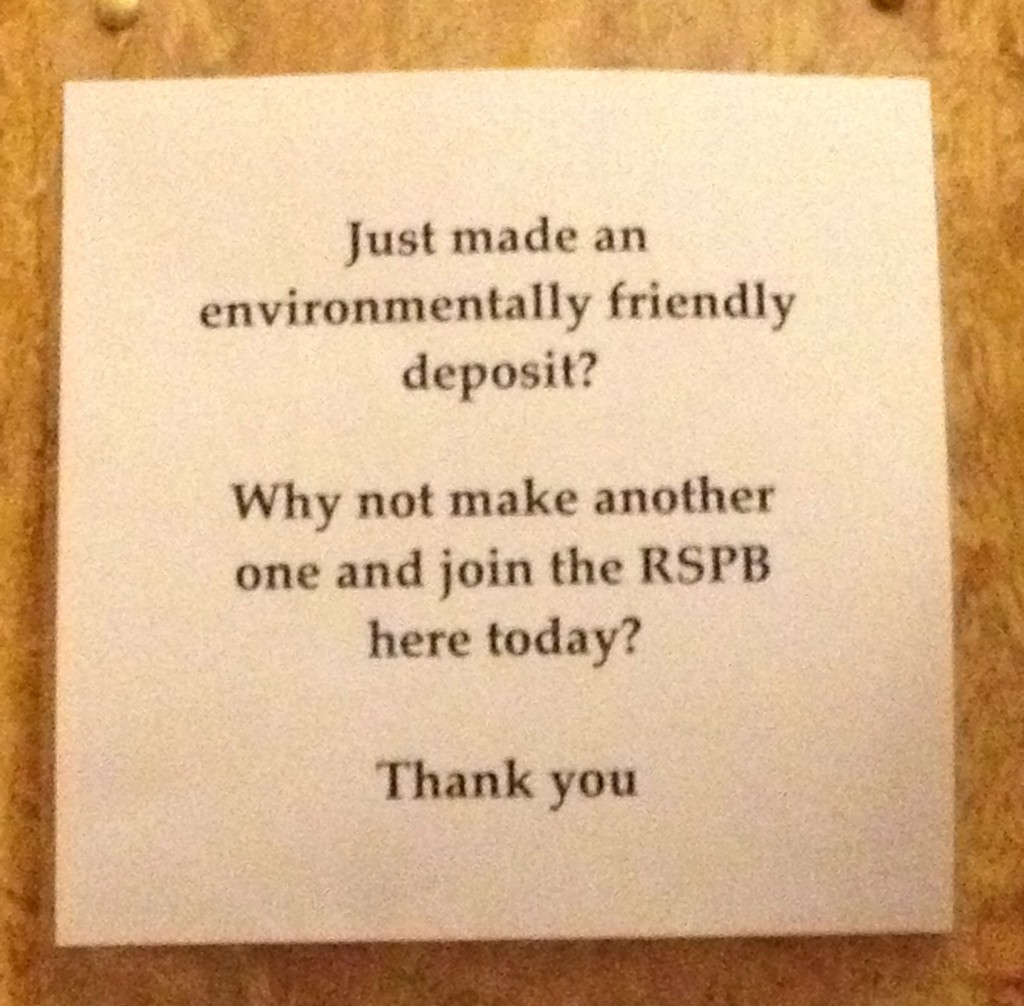
And this was the innovative replacement for “toilet roll”:
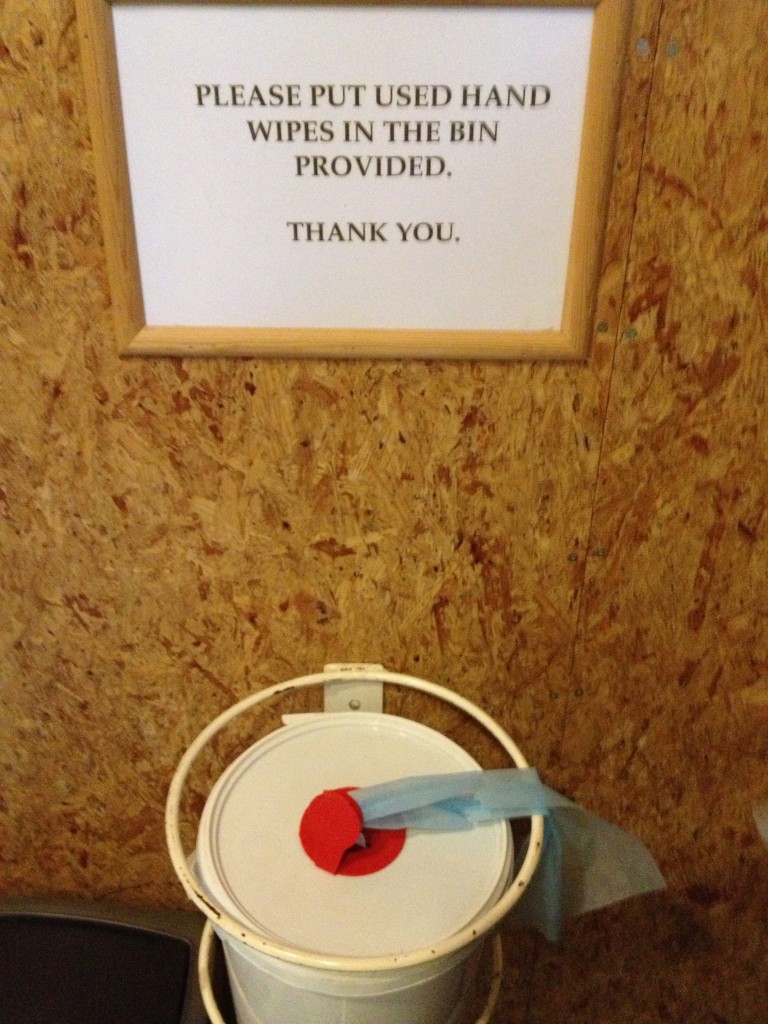
Back on the bus we had a near mishap on the narrow country road. Another bus was heading toward us from the other direction once we got close together, it was clear that the two buses could not possibly pass each other. And so the other bus actually reversed until the driver reached a side road he could back into. I would not have wanted to be that bus driver.
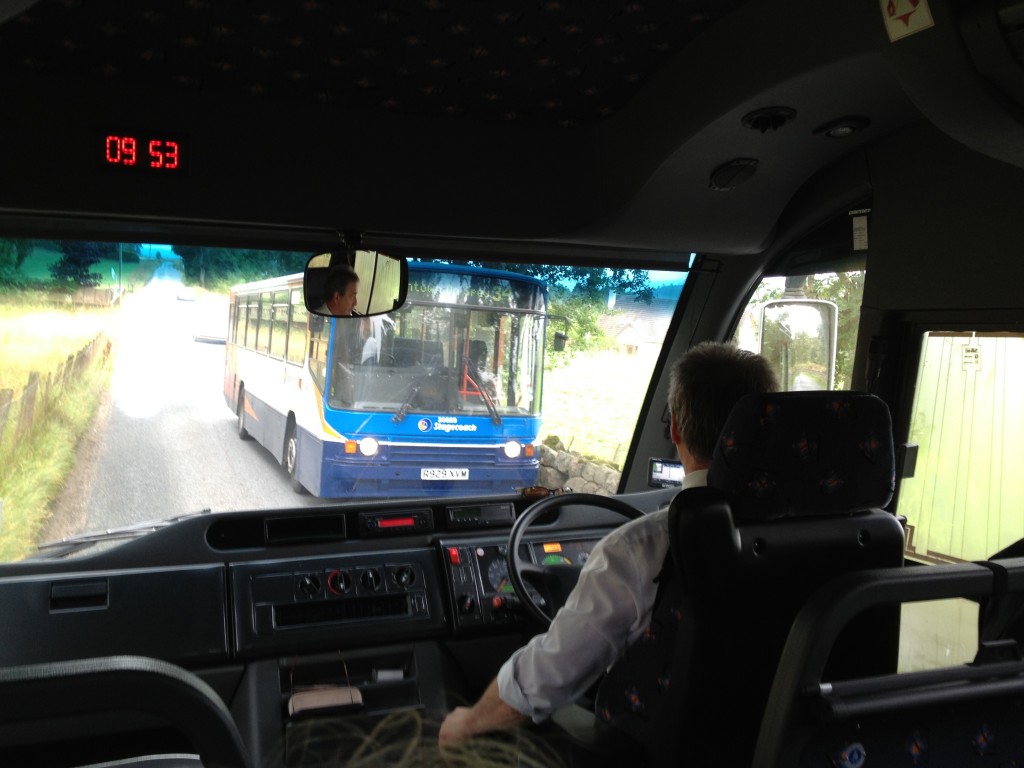
My favorite stop of the day was our picnic lunch in the Abernathy Nature Preserve, an ancient Caledonian forest. I think you can see why:
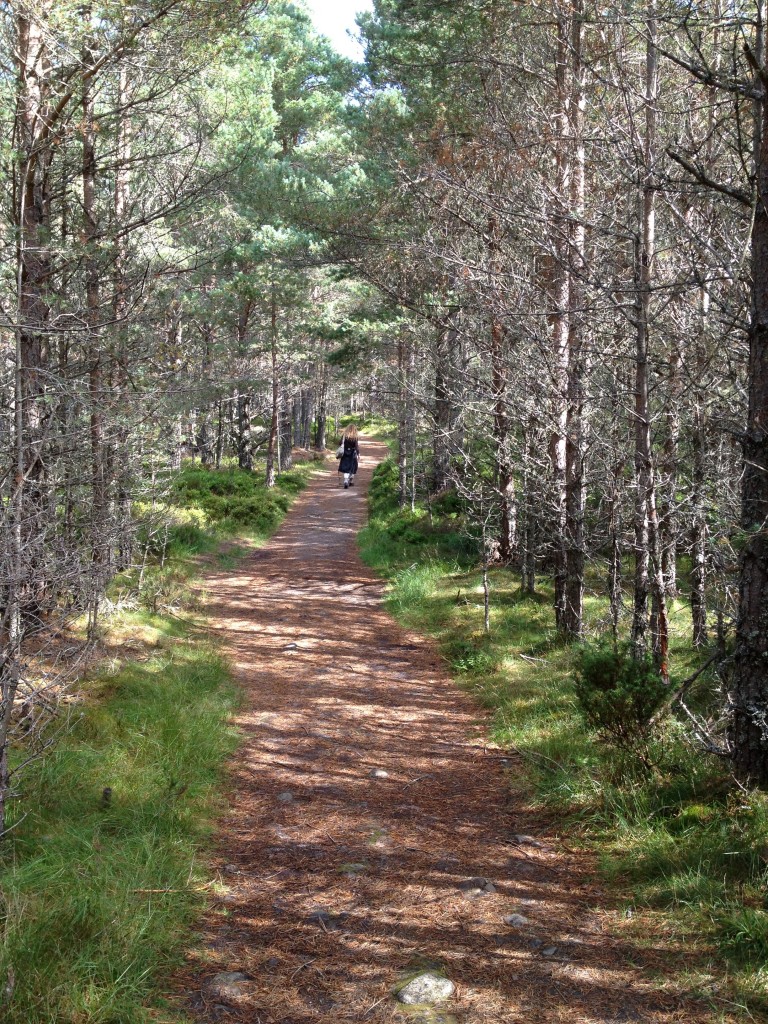
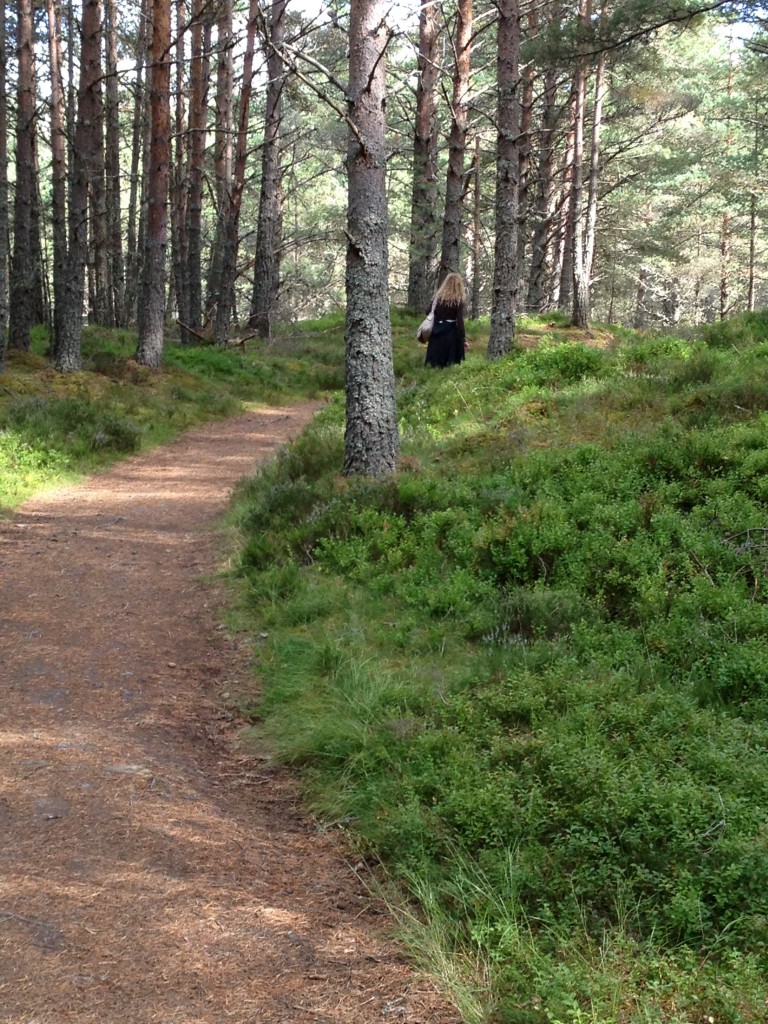
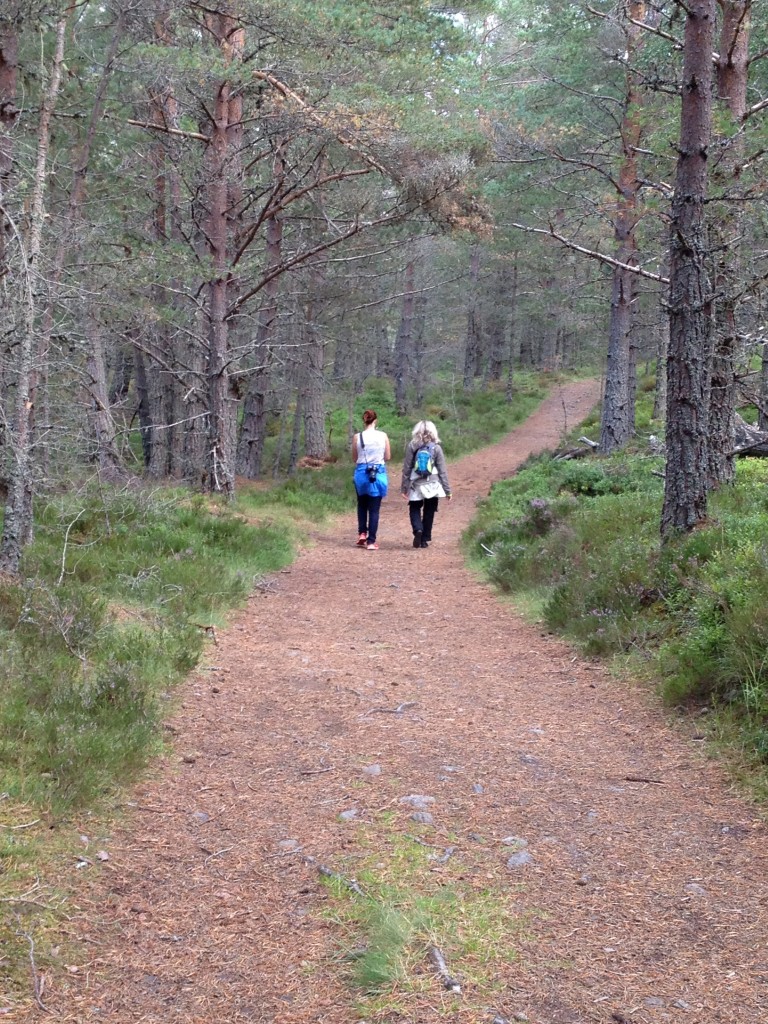
Eileene’s comment: “It’s like a cathedral.” Yes, exactly.
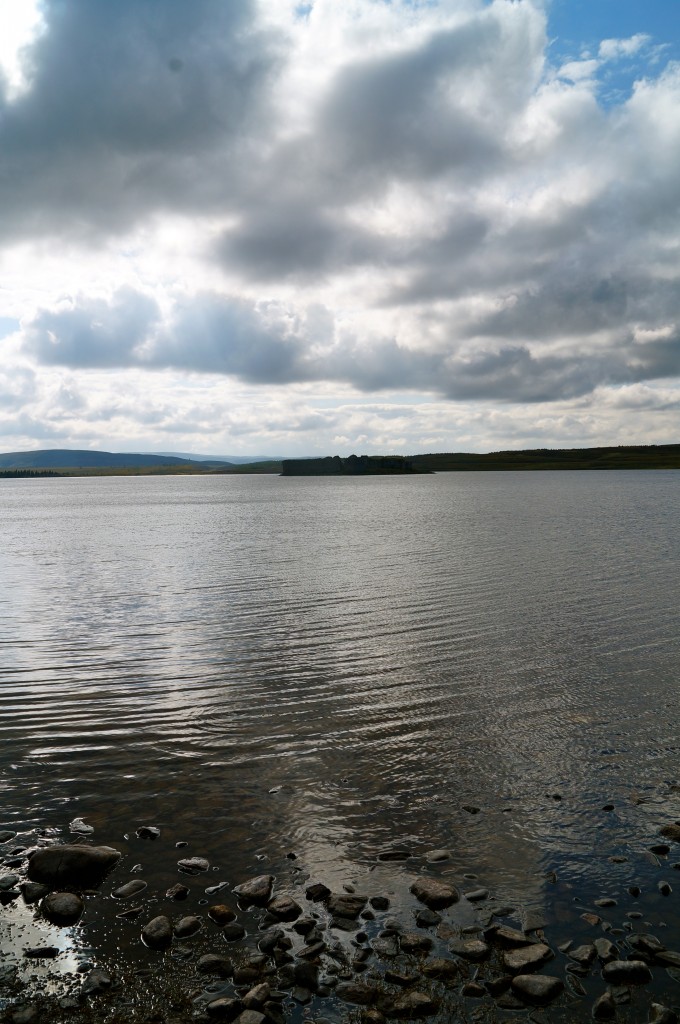
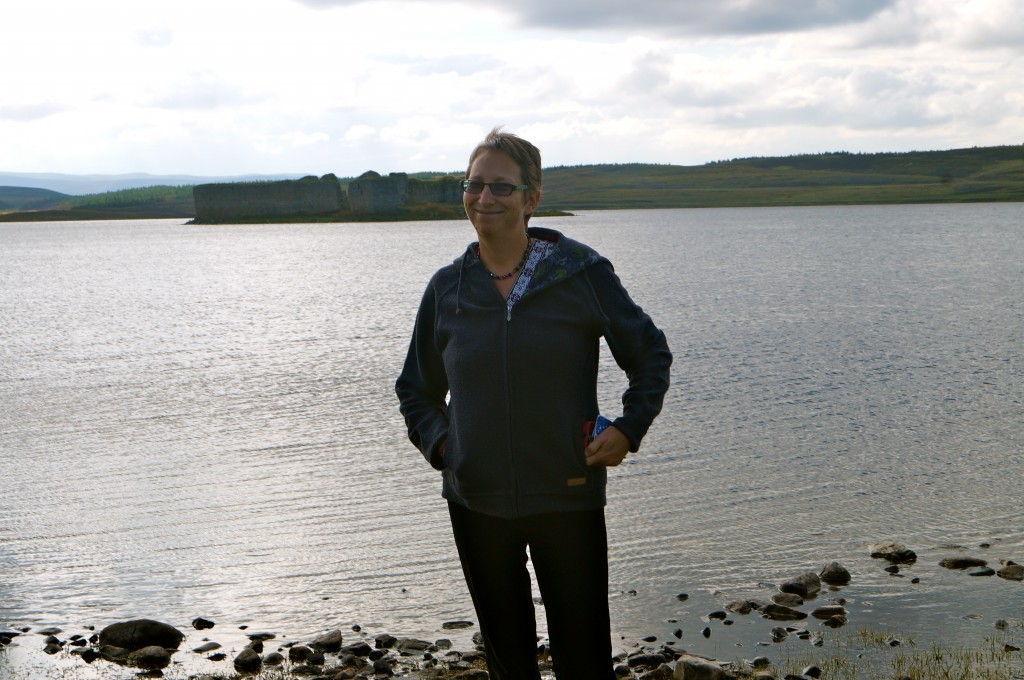
After more singing on the bus, we arrived at Cairngorm Mountain, the largest and newest national park in the British Isles. Full of extreme winter weather, it’s the biggest ski resort in all of Scotland and the coldest, windiest, snowiest place in the British Isles. We rode up to the top of the resort on the funicular, a trolley like car that ran on a track.
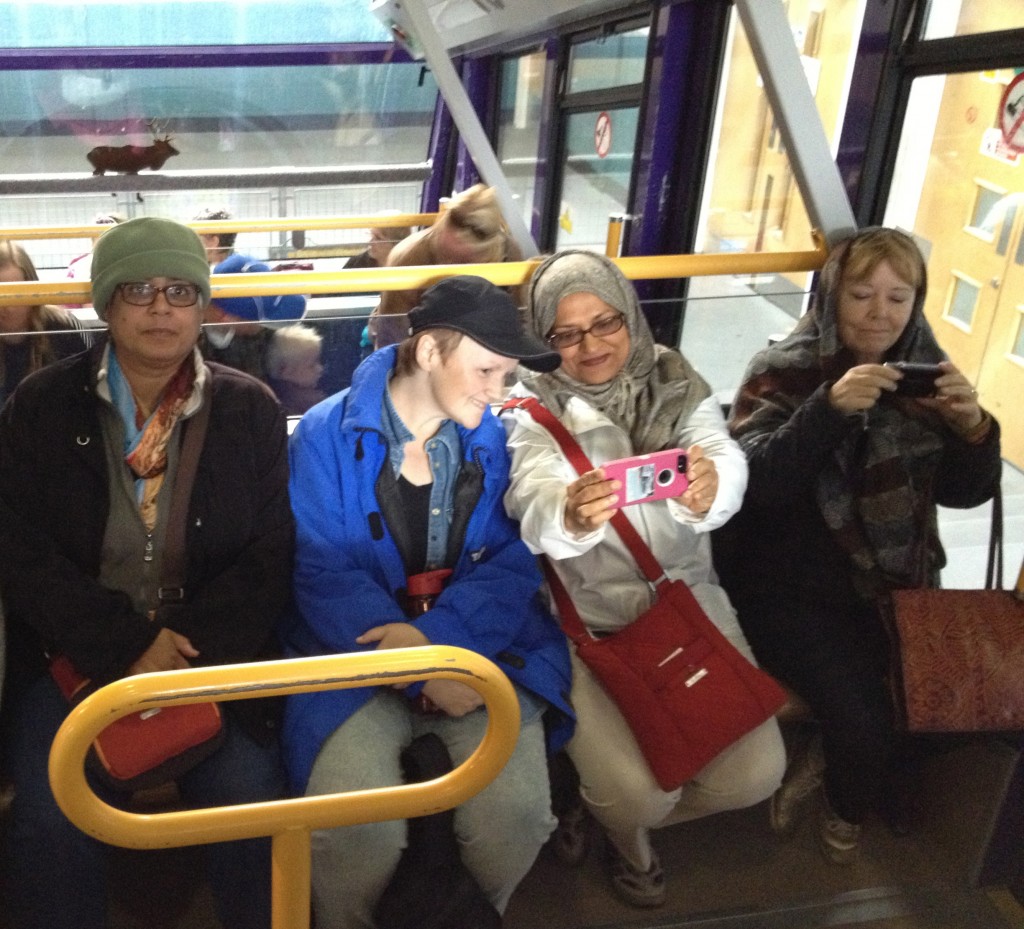
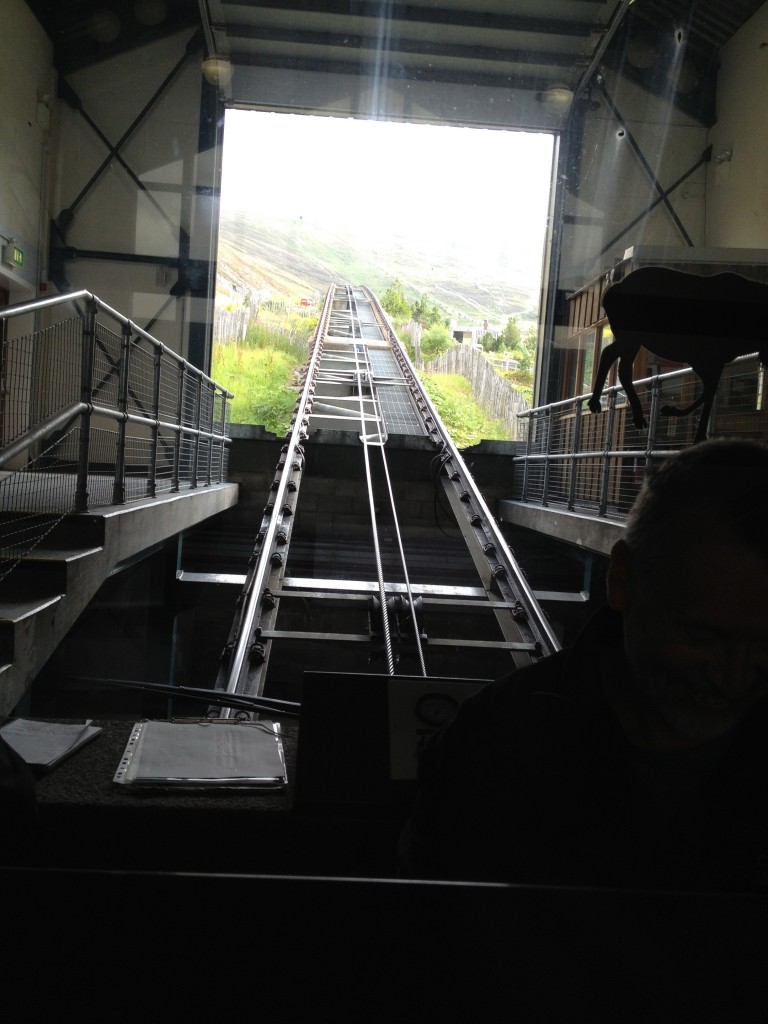
In winter, the funicular track can be buried in up to 7 meters (22 feet) of snow, requiring several days to dig out. I really would have loved to see it in the winter, but the view from the top in summer wasn’t shabby:
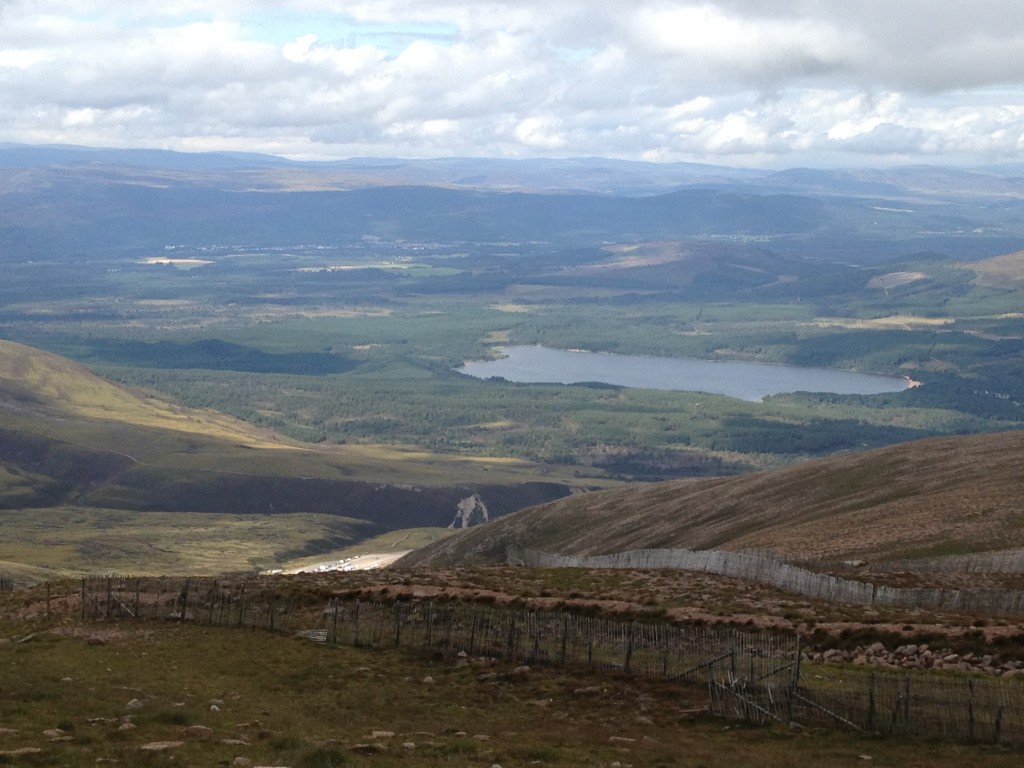
Our final stop of the day was at a tea shop famous for its cakes: The Potting Shed.
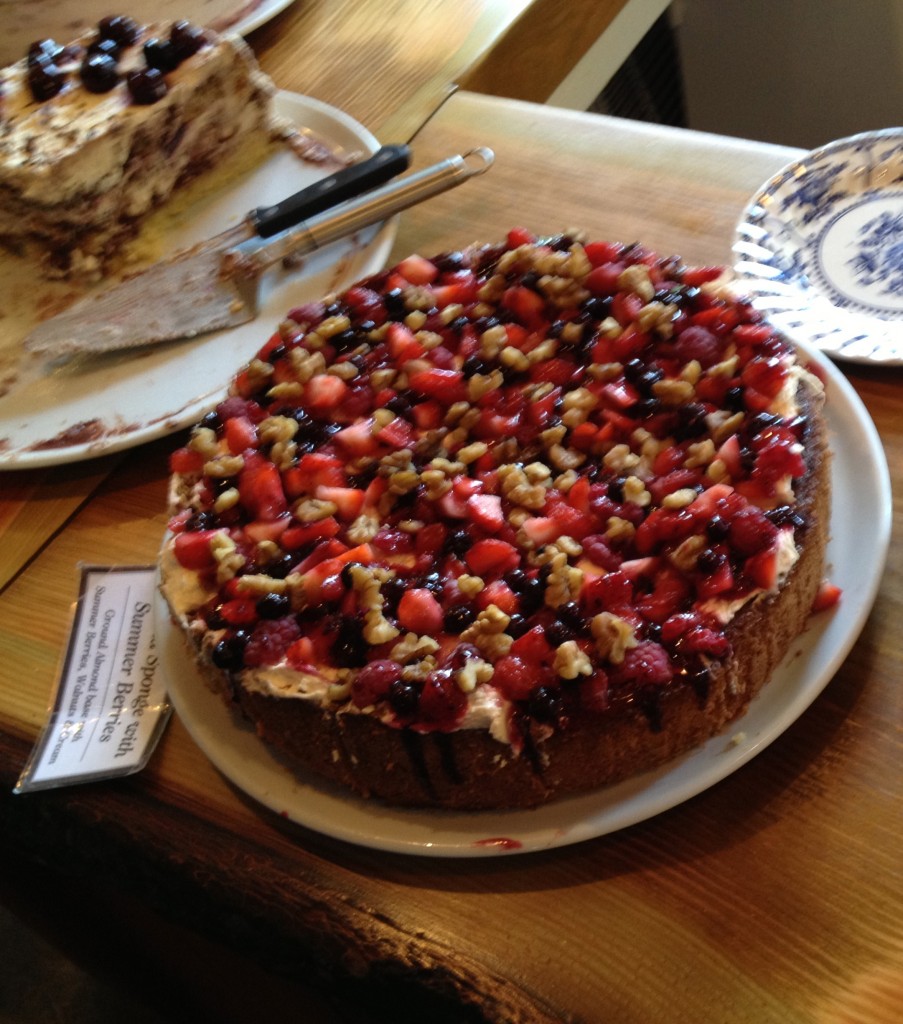
There was good reason for the fame, but what I loved most was sitting on a stool eating my almond cake and drinking my tea and watching dozens of birds right in front of me:
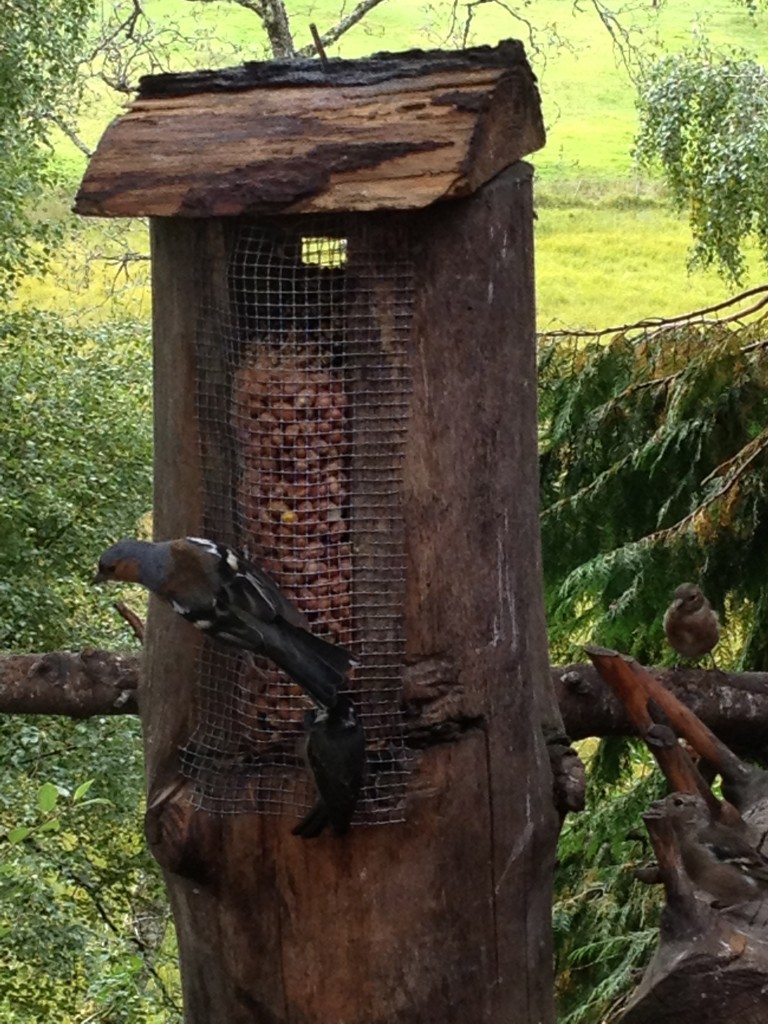
On the way back to Newbold House for dinner, Asma showed me something she’d written in her notebook. “It just came out whole in Urdu,” she told me. And as I looked at the words on the page, she translated for me what it meant:
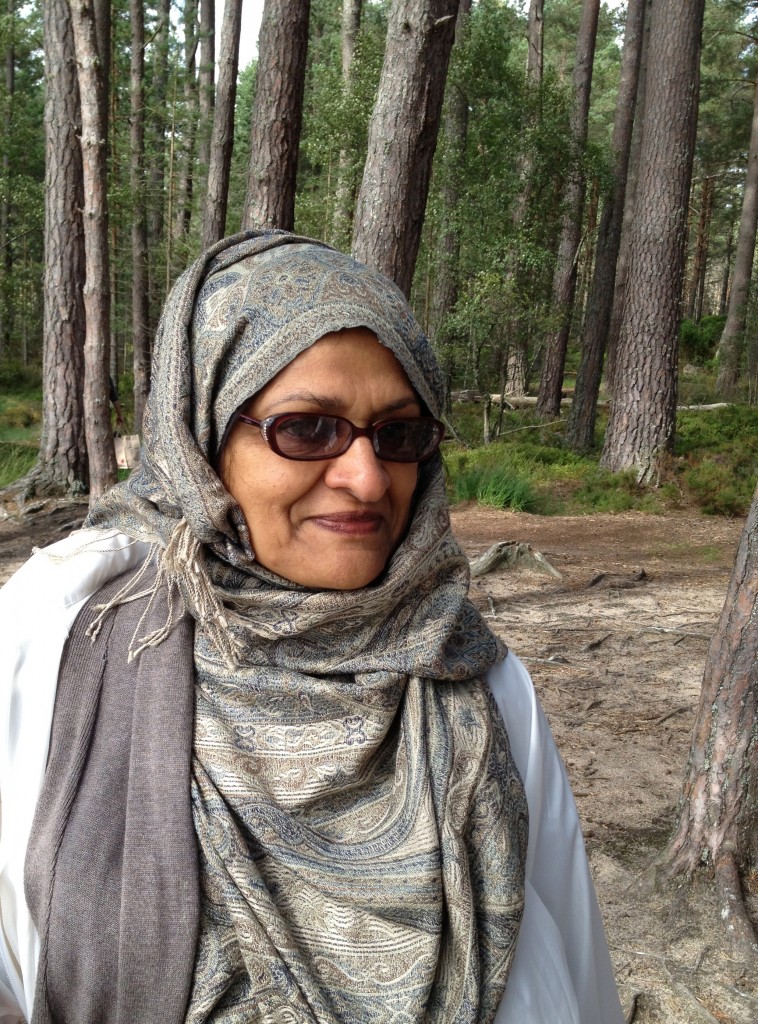
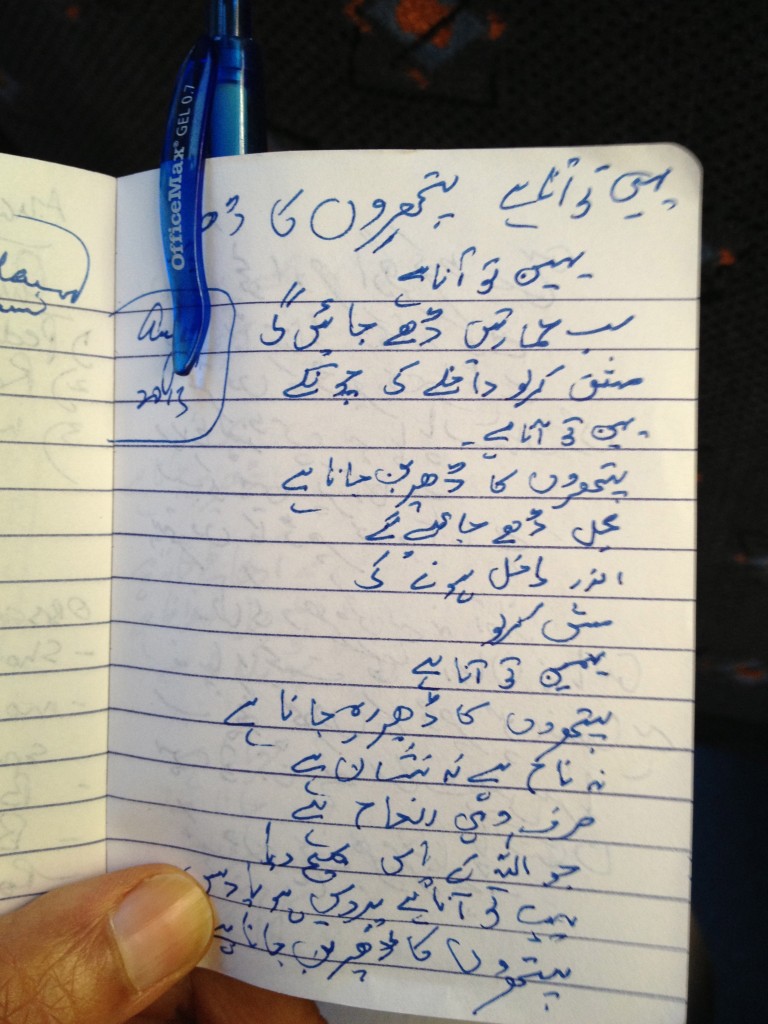
After dinner, I needed to download my pictures so I could write this post and Eileene needed to check her email, but everywhere we went in the house there was no signal. Finally we figured out if we sat on the steps in just the right way, we were good to go:
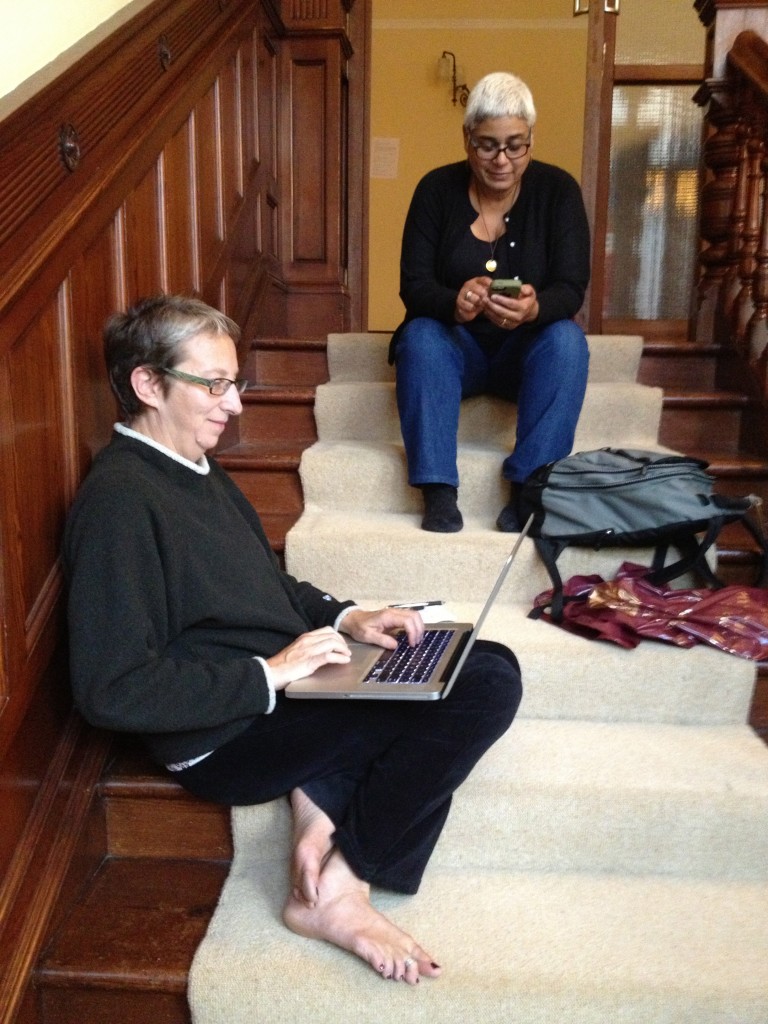
This seems to be a universal aspect of all the traveling retreats I have taught—the endless search for a good wifi signal. As Eileene remarked, “Technology and magic don’t seem to get along.”
Tonight, we had a fire (made out of wood from old discarded whisky barrels–a common source of firewood in Scotland) in the fire circle out by the side of the house. I asked each member of our circle to reflect on what they’d been told the first day there were here, that “Scotland will give you exactly what you need.” In, turn, people talked about what the ten days had meant to them. Afterwards, we said goodbye to Talin who has to leave a day early.
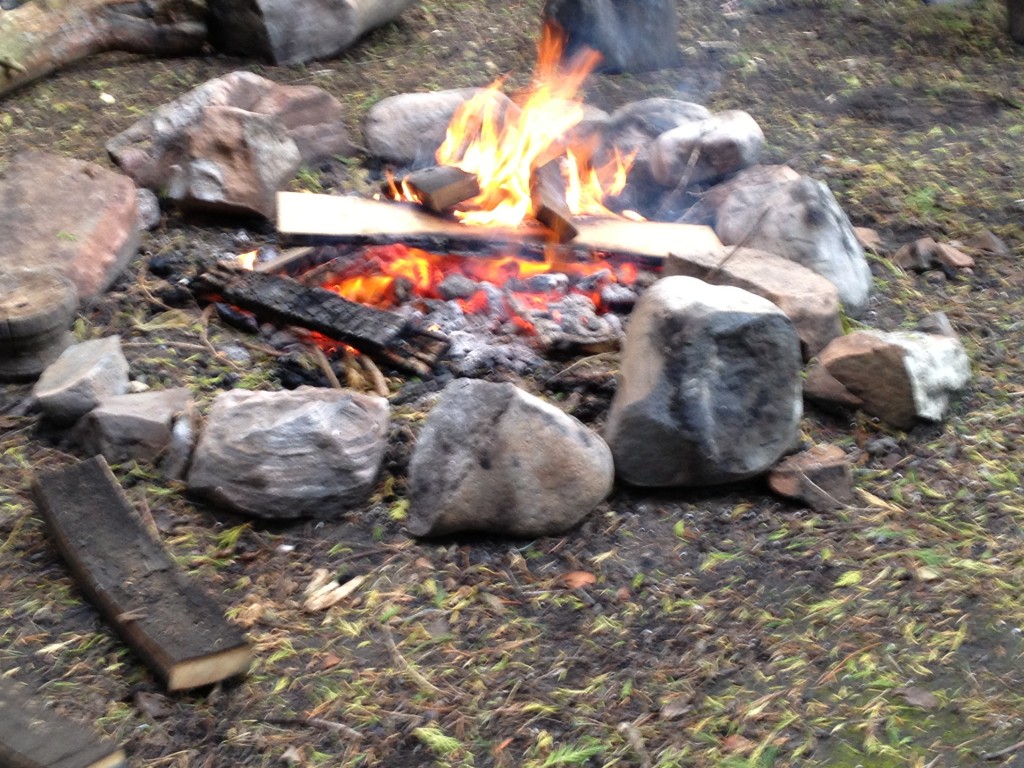
Tomorrow is our last full day together. The retreat is drawing to a close.
